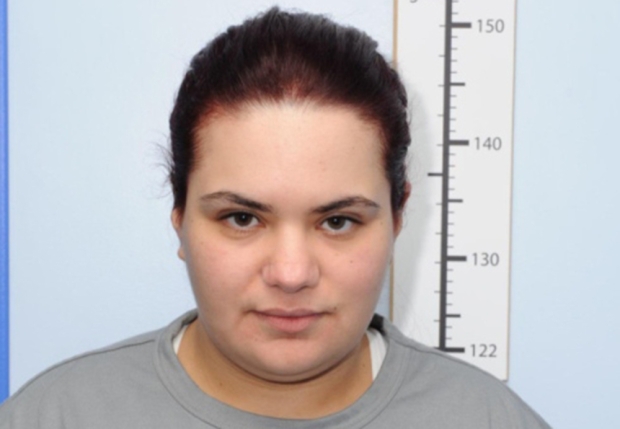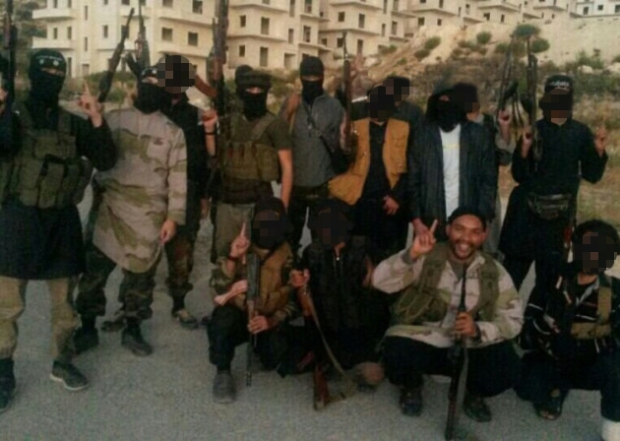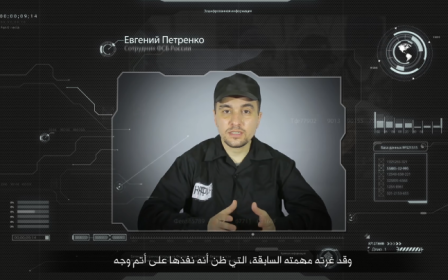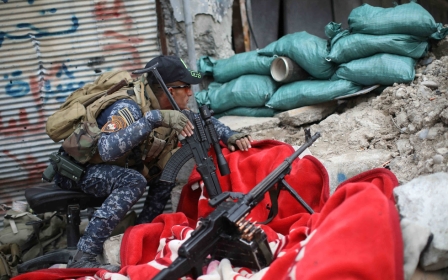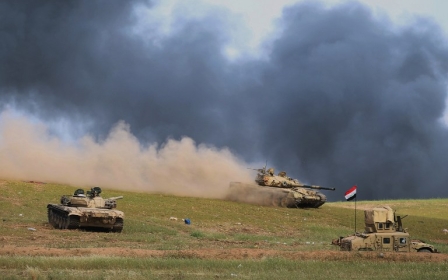British 'Islamic State Beatle' jailed in Turkish trial
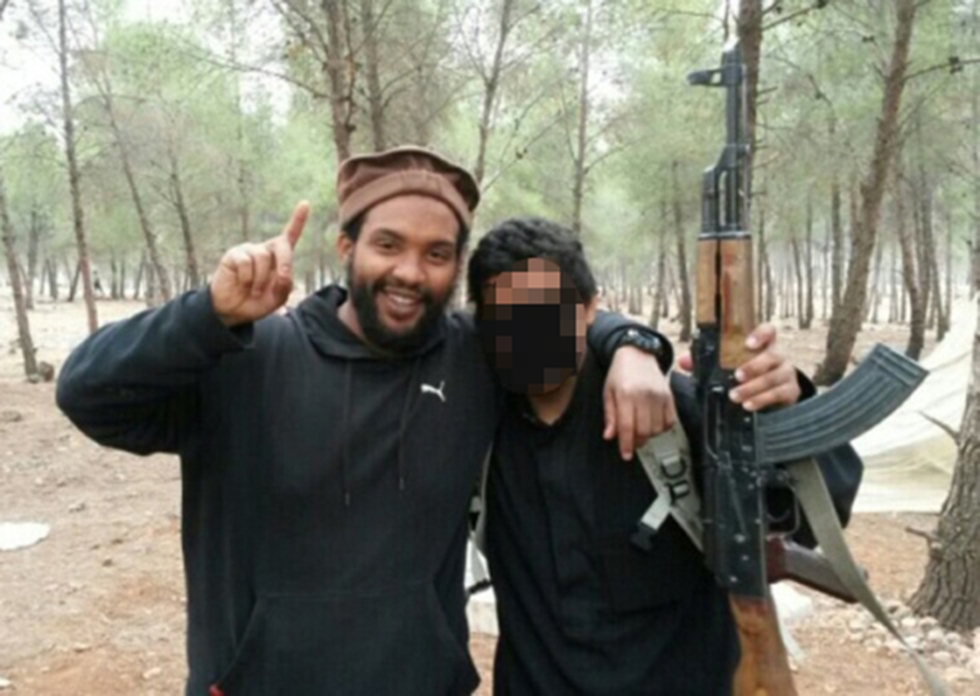
A British man alleged to have been part of a notorious Islamic State (IS) gang responsible for guarding and executing western hostages in Syria was found guilty on Tuesday of being a member of a terrorist organisation after an 18-month legal case in Turkey.
Aine Davis is alleged to have been a close associate of Muhammed Emwazi, the IS executioner dubbed “Jihadi John,” who appeared in a series of beheading videos in 2014 and 2015. He was one of the so-called “Beatles,” a quartet of British IS militants tasked with guarding foreign prisoners in Raqqa, according to media reports and the accounts of former captives.
Davis, who denies having been a member of IS, was arrested on 12 November 2015 in a raid by Turkish security forces at a villa in Silivri, a suburb west of Istanbul. Since his arrest, he has been held in a high-security prison, coincidentally also in Silivri.
Media reports at the time quoted Turkish officials as claiming that Davis and others were in the final stages of planning an attack on Istanbul that would have taken place in parallel with the IS-claimed Paris attacks the following day, which left 130 people dead in November 2015.
Turkish court papers seen by Middle East Eye describe him as a “known high-ranking operative of Daesh [IS]” also known as Ebu Eyyup El Britani, although he denies having used that alias.
But prosecutors dropped an original charge of preparation of terrorist attacks in favour of the lesser charge of membership of a terrorist organisation.
Davis was on Tuesday sentenced to seven-and-a-half years in prison and will have to serve at least another three years on top of the 18 months he has so far been held.
Two other men, Alwalid Khalid Alagha, a Saudi national, and Mohammad Ahmad Hamdan Alkhalaileh, a Jordanian national, were also found guilty and received the same sentence.
Three other defendants, Jermaine Burke, Mohammed Karwani and Deniz Solak, all from the UK, were found not guilty.
Addressing the court before the verdict, Davis said: "I want to make clear I am innocent of the charges. I don’t even know why this case has taken so long to judge. I just want my freedom.”
In the court documents, Davis said that media reports linking him to IS and Emwazi were false. He claimed he had gone to Syria on two occasions to help with aid work, but had returned to Turkey because “things were not right there”.
Davis, 33, who is originally from west London, is the most high-profile British IS suspect to have so far been arrested and convicted.
He had been the subject of an Interpol red notice warrant and British deportation request at the time of his arrest following a case in the UK in 2014 in which his wife, Amal el-Wahabi, was convicted of funding terrorism after persuading a friend to attempt to smuggle him 20,000 euros ($21,700) in banknotes in her underwear.
Davis told the Turkish court that the photos had been taken in Idlib in 2013. He said he had posed for them as a joke, although he admitted that he had acted “stupidly”.
“I do not know who was in command of the area of Idlib where those photos were taken. There were many groups at Idlib. Some of those armed individuals were foreign, some were Syrian,” he said.
“I had those photos as a sort of joke. Everyone was having photos taken with armed individuals like that in order to show off. I do not know who those people in the photos were or which group they were in.”
Davis said he had been living in Gaziantep in Turkey prior to his arrest and had gone to Istanbul with the intention of acquiring a false passport and assuming a new identity because he was a wanted man.
Questioned about his links to Emwazi, Davis said he had only known him as an acquaintance with whom he would exchange greetings because the pair had once attended the same west London mosque. He said he had not encountered him in Syria.
Emwazi was killed by a US drone strike in Raqqa on 12 November, 2015, the same day that Davis was arrested in Istanbul.
Reports in British and American media last year identified Davis as one of the so-called “Beatles” prison guards, whose nickname derived from both their British accents and the alleged enjoyment which they took from beating their captives, according to the accounts of former hostages.
The two other alleged members of the quartet, Alexanda Kotey and El Shafee Elsheikh, also from west London and whose current whereabouts are unknown, were both designated as terrorists by the US State Department earlier this year.
Accounts of the group's origins have described Davis as a "criminal mentor" who had spent time in a young offenders institute for a firearm offence and also collected drug-dealing convictions.
It said the group had held captive and beheaded approximately two dozen hostages and engaged in “exceptionally cruel torture methods,” including electronic shock, waterboarding, mock executions and crucifixions.
Family members of David Haines and Alan Henning, the two British hostages among those killed, last February called for Davis to be extradited to the UK.
The then-head of the Home Affairs Select Committee, Keith Vaz, also said he supported calls for Davis' extradition to face trial in the UK.
“Turkey is a key ally of the UK and their support in ensuring he is brought back as soon as possible is extremely important.”
A British foreign office spokesperson told MEE: “We are aware of the conviction of Aine Leslie Davis for terrorist offences in Turkey.”
New MEE newsletter: Jerusalem Dispatch
Sign up to get the latest insights and analysis on Israel-Palestine, alongside Turkey Unpacked and other MEE newsletters
Middle East Eye delivers independent and unrivalled coverage and analysis of the Middle East, North Africa and beyond. To learn more about republishing this content and the associated fees, please fill out this form. More about MEE can be found here.


